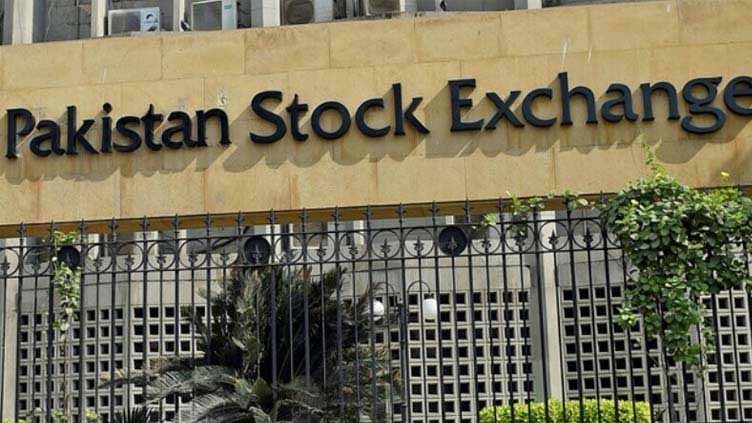Following the government’s appropriate reaction to India’s sabre-rattling, PSX regains ground.

The Pakistan Stock Exchange (PSX) returned to the positive zone on Friday following a period of steep fall brought on by elevated global tensions.
The stock exchange saw an upward trend at the beginning of the fifth and last trading day of the workweek.
The benchmark KSE-100 index rose more than 800 points to 115,844 points.
It’s important to note that the KSE-100 index fell 2,206 points at the end of the previous trading day, closing at 115,019 points.
Amidst simmering geopolitical concerns and the International Monetary Fund’s (IMF) prediction of a falling growth rate, the PSX saw a sharp downward spiral at the beginning of Thursday.
The benchmark KSE-100 index lost roughly 2,500 points in the early hours of trade and then hovered around 114,661 points due to growing fears. Later, things got a little better, but the major index lost 2,206 points and ended the day at 115,019 points.
In important equities like UBL, HUBC, HMB, MARI, and ENGROH, panic selling was noted.
The benchmark index dropped 1,204.21 points on Wednesday, closing at 117,226.15.
As the stocks moved lower, Topline Securities wrote in its post-market analysis, “This reversal in sentiment can largely be attributed to escalating regional geopolitical tensions, which prompted investors to adopt a cautious stance and lock in recent gains.”
Amid uncertainties about global tariffs, the IMF lowers its growth rate prediction for Pakistan to 2.6 percent.
The international creditor lowered its earlier prediction of Pakistan’s economic growth to 2.6 percent from 3 percent on Wednesday.
The uncertainty caused by the reciprocal tariffs that US President Donald Trump put on a number of nations, including Pakistan, has severely damaged the outlook for the world.
Additionally, the IMF predicted that Pakistan’s economic development will slow down in the upcoming fiscal year 2025–2026.
Pakistan’s economic growth for the current fiscal year was projected by the finance agency to be 3 percent in its January 2025 World Economic Outlook report.
In October 2024, the IMF predicted that Pakistan’s economy will increase by 3.2% in the current fiscal year. The most recent forecast, however, indicates that the South Asian nation’s economic output will stagnate and might fall short of the growth target.
However, the IMF’s forecast of Pakistan’s current account deficit has been lowered from 1 percent of GDP to 0.1 percent.
The current account deficit has been reduced down to $400 million from the IMF’s initial estimate of $3.7 billion.
According to the IMF, the current account deficit is also anticipated to stay at 0.4% of GDP in the upcoming fiscal year.